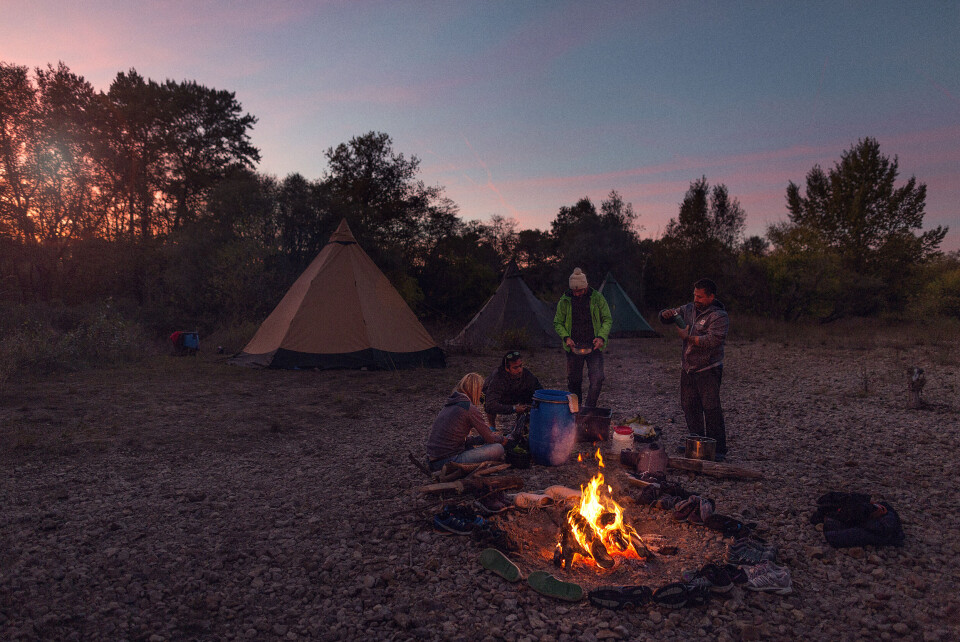-
Sleep in a 100-year-old railway carriage at a former Brittany station
Refurbished railway compartment can sleep up to 11 people at a time
-
Which internet provider is best for fixed and mobile coverage in France?
A recent study evaluated criteria including speed, uploads, latency, and streaming performance
-
Why it is becoming harder to park in urban areas in France
A new law is set to come into force this year
Planning a holiday? See an adventure close to home in France
‘Microadventures’ are the latest trend among French holidaymakers. We look at the origin of the movement

Building a fire in the woods, 50 minutes from Paris, hiking and yoga in the Alps… these are just two examples of ‘microadventures’ offered by travel agencies in France.
The concept, mainly targeting those aged 25 to 45 and living in large cities, lets people have unforgettable experiences over the course of a long weekend without flying halfway across the globe.
The clients are “connected to nature, and want to get away from the hurry of their daily lives”, said Charlotte Bocquet of Chilowé, which started out as a newsletter and digital media platform offering travel ideas before becoming a fully-fledged travel agency during the Covid lockdown.
The term ‘microadventure’ was popularised by British adventurer Alastair Humphreys more than a decade ago.
Definition of a microadventure
He defines it as “an adventure that is short, simple, local, cheap – yet still fun, exciting, challenging, refreshing and rewarding.”
For Chilowé, the ‘micro’ element refers first of all to the duration of the trip.
“Two or three days, unplugging, something slightly incredible to make a change at the end of the week,” Ms Bocquet said.
Experiences include three days’ canoeing along the Dordogne, and hiking in the Vercors mountains while looking for traces of wolves.
Specific trips are organised for families where they can learn to survive in the wild.
For those who are less sporty, Chilowé offers ‘micro-immersions’, such as “living the life of a Comté cheesemaker in the Jura.”
The common themes are a change of scenery, original activities, and learning about a new part of France with a local guide.
Jura just as sexy as Costa Rica
“We want to show that the Jura is just as sexy as Costa Rica,” said Ms Bocquet.
Two thousand people travelled with Chilowé last year, although this also includes longer trips.
Other agencies such as Explora Project, Terres d’aventure and Helloways have also made short, local adventures a key part of their offering.
Then there are the websites and newsletters that promise to inspire readers to head off on their own microadventures.
One of them, Les Others, has published a free guide of 52 activities to do in nature.
Staying in France means cutting down on the time spent travelling, so that adventures can be squeezed into a busy work week, and there are, of course, environmental benefits too.
Anne-Lise Olivier, director of Acteurs du Tourisme Durable, a group of industry professionals committed to sustainable tourism, said: “Transport makes up three-quarters of the emissions of a trip, a large majority of which comes from travelling between your home and destination.”
Even before Covid, a majority of people chose to stay in France for their holidays, but the term microadventure “reflects a real acceleration in the desire to go less far in search of experiences”, she said.
‘Experiences’ can mean adventures, or connecting with local artisans.
It’s about getting involved, a quest for authenticity and meeting locals.”
Ms Olivier believes there is still work to be done in changing people’s mindsets.
“It’s important to deconstruct the image of a successful holiday as being necessarily far away – to say that it’s not a failed holiday if you go 150km from your home.”
At the same time, there has been a change in the demographics that certain tourist boards are trying to attract.
Covid effect
“Covid instigated a certain movement, and various destinations have continued in wanting to attract a local clientele, targeting local residents first of all,” she said.
“Websites sometimes offer specific deals if you live in the region.
“The border between tourists and residents is becoming blurred – a resident is also a tourist.”
Eighty-eight per cent of French people who went on holiday in July-August 2022 stayed in France, according to an OpinionWay survey – similar to previous years. Some of the most popular destinations have even had to impose restrictions on visitor numbers to preserve the natural environment and biodiversity.
Recent years have seen quotas introduced in the Calanques near Marseille, and at major tourist sites on the island of Corsica.
“One of the main challenges of sustainable tourism is making sure not everybody goes to the same place at the same time,” according to Ms Olivier.
“Microadventures can contribute to that, as they are often out of the ordinary, and not necessarily going to the most popular sites.”
While this type of travel is fashionable, it remains a small niche.
“There will always be people who want to take a selfie in the most Instagrammable places.”
Related articles
Cheaper holidays at French DIY campsites where everyone pitches in
These are the rules for wild camping in France
Truck or home? Clampdown on converted vans in French tourist spots
























